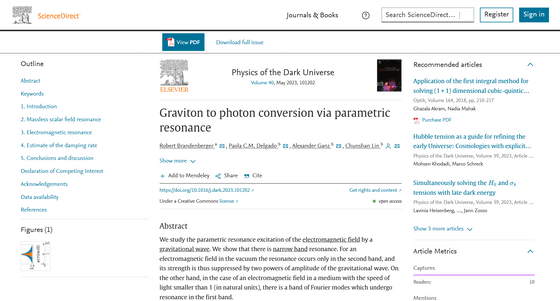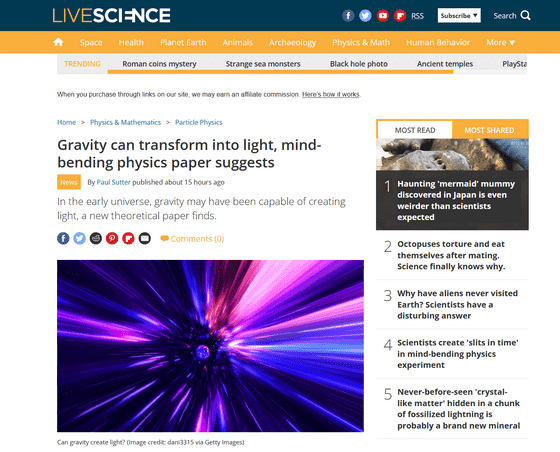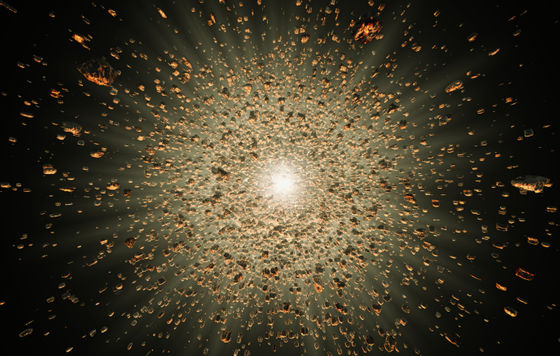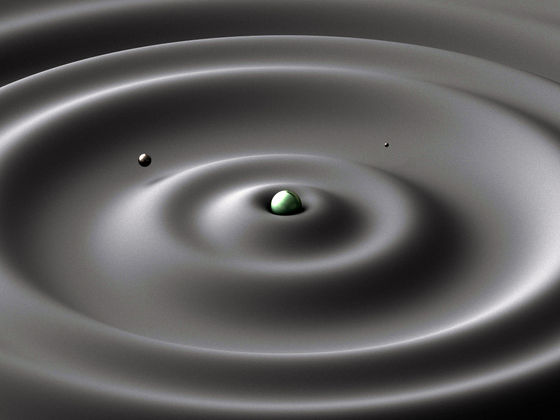Amazing research results are reported that gravity can turn into light

It is usually impossible to create something out of nothing, so for example a photon, a particle with no mass, cannot change into another particle with mass. However, in the early and very extreme worlds of the universe, light may have originated from gravitational waves, according to research results.
Graviton to photon conversion via parametric resonance - ScienceDirect
https://doi.org/10.1016/j.dark.2023.101202

Gravity can transform into light, mind-bending physics paper suggests | Live Science

Many of the known properties and behaviors of gravity are understood through the general theory of relativity established by Albert Einstein. In it, it is generally not assumed that gravity itself produces particles, although the distortion of space-time produced by gravity may affect the motion of particles. However, gravity is thought to be transmitted by invisible particles called
In a paper published on the preprint server arXiv on March 28, 2023, researchers investigated whether gravity itself really changes into other particles in the very early universe. I looked. The young universe of this era is still small, hot, and extremely dense, so all matter and energy are condensed to an unimaginable scale, a state that cannot be replicated even with particle colliders built with the latest technology. It is believed that it was about

In such a universe, gravitational waves played a more important role than they do now. Gravity in the universe today is the weakest of the four fundamental forces that govern the natural world, so it has no appreciable effect unless it originates from large masses such as planets and stars. .
However, in the early extremes of the universe, gravitational waves were much stronger and could have had a significant impact on all other beings. In this early universe, gravitational waves collided with each other and amplified, until all beings in the universe were swept up in the waves, creating a resonance effect. Gravitational waves then acted like pumps, repeatedly compressing matter into tight masses.
Gravitational waves are currently observed in collisions of black holes, etc., but since gravitational waves have the property of space-time ripples, their effects are not limited to interactions such as collisions between huge masses, but also affect electromagnetic fields. may give From this, the researchers thought that ``photons may have been generated spontaneously by compressing the radiation due to gravitational wave resonance into an extremely high energy state.'' This is the mechanism by which gravity produces light.

Calculations show that this process is so inefficient that it would not last long in the rapidly expanding early universe. But if there was enough matter in the early universe, gravitational waves would be able to stagnate longer, producing a large number of photons, as if light traveled slower in air or water than in a vacuum. I have found that it is possible to do so.
Research on the early universe has just begun and is not yet fully understood, but this study provides new insight into the possibility that gravity can produce light. The enormous amount of light produced by this process is thought to influence the formation of matter and the evolution of the universe. expected to occur.
Related Posts:
in Science, Posted by log1l_ks







